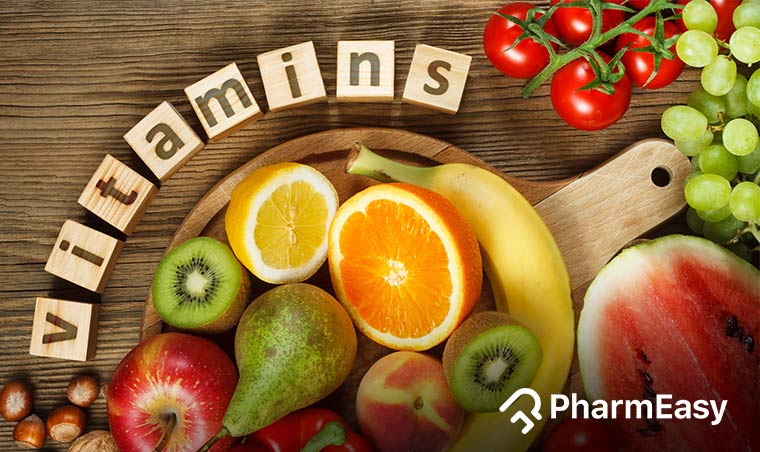
Your doctor may have given you specific recommendations regarding the types of foods you should avoid. High blood pressure can be prevented by a few simple things. Reduce your intake of processed foods and fatty meats. Also, keep a record of all medications. You'll be more likely to remember to take your medication. You should always have a list with all of your medicines on hand so you are able to quickly refer to it.
Dr. Desai encourages people with high blood-pressure to get as much exercise and as many as possible. Walking, running and swimming are all great options. Salt is a major enemy of high blood pressure. Salt is a major cause of high blood pressure. It increases the volume and pressure of the blood vessels. Salty foods should be avoided.

Second, a healthy diet is essential. A good diet is full of fruits and vegetables, which are low in saturated fat and high in fiber. Vitamins and minerals, as well as whey Protein, can be taken to lower blood pressure. Reduce your intake of alcohol and sugary beverages. You can lower your risk of high blood pressure by avoiding these foods.
Third, it is important to reduce the amount salt and saturated fat in your diet. You should limit the amount of salt and sugar in processed foods. You should eat more fruits and vegetables. This will reduce your blood pressure. You can also limit how much alcohol you drink. High blood pressure is a reason to not drink alcohol. This is especially true if you're over 60 years old and have been drinking heavily for many years.
If you adhere to the above tips, your heart will be healthier. Hopefully, these tips will help you maintain a healthy blood pressure and feel better about yourself. These tips can be a great help for you and your doctor. You'll soon be able to live a healthier life by learning how to manage your blood pressure. Once you find the right balance, it's possible to live life fully and enjoy every moment.

It is important to limit your intake of alcohol. A standard beverage contains 14 grams of alcohol, so drinking in moderation is the key to lowering your risk of high blood pressure. Salty foods high in sodium can be avoided. You can keep your blood pressure normal by eating a low-sodium meal. Additionally, it is important to reduce salt in your daily diet.
FAQ
What's a good workout plan for 7 days?
A seven-day program should include three days of cardio training (running, biking and swimming), two strength exercise (using free weights or weight machines) and one flexibility/core work out (yoga, Pilates). Each activity should be done at least once per week. Maximum 45 minutes should be allotted for each session.
Cardiovascular Exercise: Running, Biking, Swimming
Aim to do at least 60 minutes per week of cardio. Try to do 75 minutes per semaine for the best results. Cardio exercises can increase blood flow and stimulate the growth of muscles.
Strength Training
Cardio exercises focus on the heart and lungs while strength training targets muscles and bones. Strength training helps you burn calories even while resting.
Flexibility and Core Workouts
Flexibility and core workouts are great ways to strengthen your entire body. Both yoga and Pilates can be great choices.
Does Weightlifting Burn Fat Faster?
Weight lifting will help you burn more fat, but it's best to combine it and cardio.
You should do weightlifting after your cardio workouts to maximize its benefits.
If done correctly, weightlifting can increase your heart rate and oxygen intake which in turn helps you lose weight.
If you don't mix it with cardio, your body won't notice significant changes.
How many times a week should I exercise?
It depends on how much time you have available and what type of exercise you prefer. A general guideline would be moderate-intensity aerobic exercise 3 - 5 days a week. It is important to not overdo it. It is crucial to exercise regularly in order to reap the full benefits of your workouts.
Which exercises are best for me?
It really depends on the type of fitness goal you have. Some people concentrate on endurance activities such running, cycling, swimming. Others prefer lifting weights, or using resistance bands. There are many exercise programs on the market today. Pick the option that fits your needs.
Which dietary supplement can help you lose weight?
Losing weight requires both diet and exercise. However, some people find that certain supplements help them along the way.
A few studies have suggested that omega-3 Fatty Acids might help weight loss. Omega-3s, essential fats, are critical for brain function and cell membrane health. They're found in seafood like salmon, tuna, shrimp, and cod liver oil.
Research suggests that green tea may be beneficial in weight loss. Green tea contains catechins. These antioxidants may be able to increase metabolic rate and encourage weightloss.
Statistics
- The PRS enabled risk stratification for overall prostate cancer and lethal disease with a four-fold difference between men in the highest and lowest quartiles (HR, 4.32; 95% confidence interval [CI], 3.16-5.89). (pubmed.ncbi.nlm.nih.gov)
- An estimated calorie range for moderately active adult males falls between 2,200 to 2,800 calories per day, depending on age. (eatright.org)
- Are You One of the 20% of Guys (mh.co.za)
- 10 pounds in a month is likely during a lean bulking phase, especially for beginners. (muscleandstrength.com)
- Candidates and applicants must pass all four tests at 70% (minimum level) to graduate from Basic Deputy U.S. Marshal (BDUSM) Training. (usmarshals.gov)
External Links
How To
What nutrients does a man require daily?
Men require daily nutrition for healthy growth and development. The body requires vitamins, minerals, proteins, carbohydrates, fats, water, fiber, and other essential elements.
Also, the male body requires certain nutrients at specific times during the day. To give you an example, the body uses energy it receives from food to make hormones and antibodies. When you awake, protein is used by your body to build muscles or repair damaged tissue.
Your body uses the night to break down fat and store extra energy as glucose. Your body has less energy but still requires enough nutrients during this time. You can have a snack at night if you feel hungry.
Working out requires adequate carbohydrate and protein intake. After a hard workout, muscle soreness may occur.
You must ingest carbs and protein within two hours of training to prevent this. To provide energy, your body will begin to break down stored glycogen.
Additionally, it is important to eat protein right away after your workouts are over. This prevents muscle tissue from being broken down while you are sleeping.
Your body makes lactic acid when you are doing intense physical activities. The body produces lactic acid when there is too much activity. This can cause fatigue. Avoid this by eating foods rich in carbohydrates such as fruits or vegetables.
Carbohydrates can give your body the energy it requires to recover from intense exercise.
Additionally, lean meats, fish and eggs, dairy products, yogurt, cream, cheese, yogurt and beans can be added to your diet.
All these foods are high-quality sources of protein. Protein promotes muscle growth and repairs damaged tissues. Protein also supplies the amino acids your body requires to make sex hormones, such as testosterone.
For healthy skin, hair and joints, it is important to eat enough fats. Healthy men need between 20% and 35% of their total caloric intake from fat.
Fat helps protect your heart health and prevents cancer. It keeps your brain healthy and functioning well.
Vegetable oils, such as olive oil, sunflower oil or corn oil, soybean oil and peanut oil, can supply most of the fats you require.
These oils contain high levels of monounsaturated fat acids (MUFAs). MUFAs reduce cholesterol and inflammation. They protect your cells from damage by free radicals.
Saturated fats (SFAs) are found mostly in animal products like meat, dairy products, and butter. SFAs raise LDL ("bad") cholesterol and increase triglycerides. They promote weight gain and abdominal fat.
Polyunsaturated oils (PUFAs), are found in plant-based foods like nuts, seeds and vegetable oils. PUFAs reduce inflammation and improve cardiovascular function. They can also control blood sugar levels and cholesterol.
Erectile dysfunction is common in men with low HDL ("good") cholesterol. A high intake of saturated fats leads to higher levels of bad cholesterol.
Men who eat large quantities of red meats or pork may develop prostate problems. When heated, nitrates are converted to nitrosamines. These compounds can lead to cancer.
Most processed meats contain nitrites or other harmful chemicals. Avoid them completely.
The American Heart Association recommends eating no more than 2 servings of red meat per week. Choose poultry, fish and legumes instead.